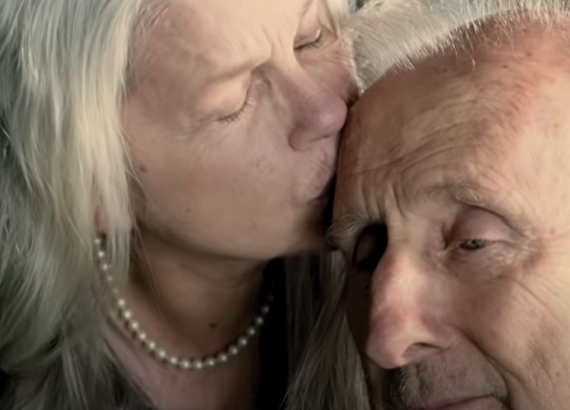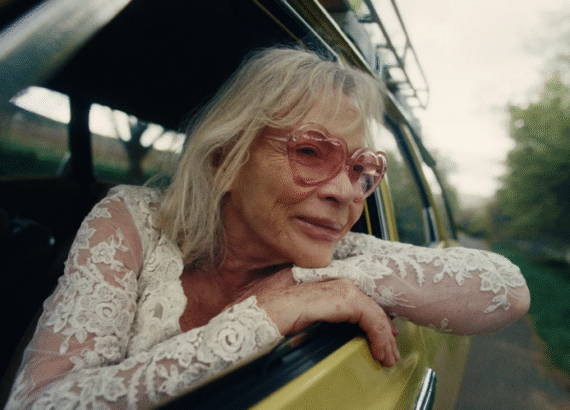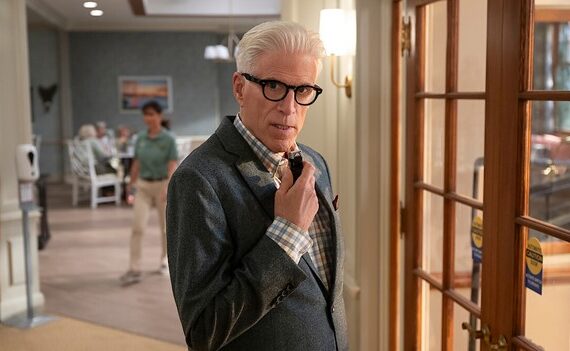POST #11
Ageism in Film:
An Enlightening Conversation with Jim and Rose
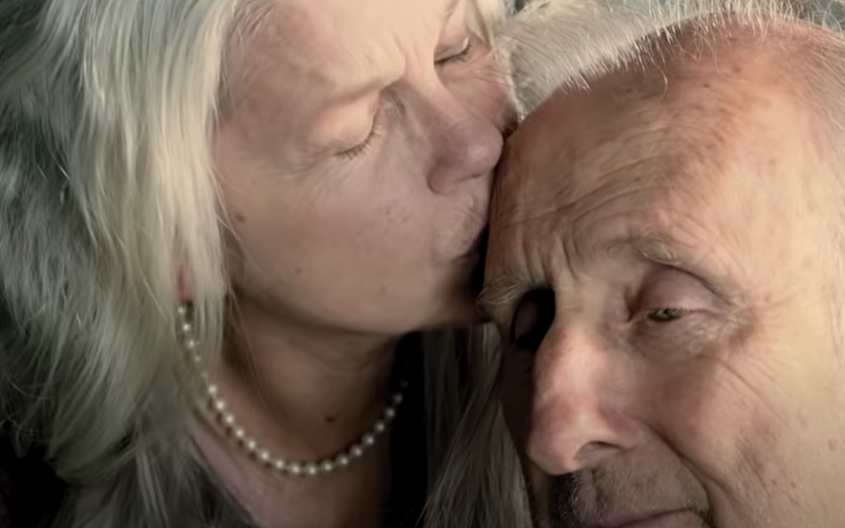

Movies About Aging and Elderhood (MAA) had a chance to speak briefly with two veteran film reviewers (Jim Vanden Bosch and Rose Capp) about ageism, and how it is packaged, perceived, and portrayed in current films.
MAA: Let’s start with an obvious question. What is your perception of ageism, and the potential impact it can have on older adults?
JV: Ageism is a curious kind of ism. Isms that are prejudicial usually result in some kind of othering–someone who looks or believes differently than you is regarded with disdain or suspicion and is excluded from your circle of acceptance, regard and empathy. Ageism is the only prejudicial ism that will eventually apply to you, yourself. By holding ageist attitudes—dismissing and devaluing older adults in some way—you participate in fostering a cultural acceptance of the very othering that will someday, if you live long enough, apply to yourself. So you end up othering and devaluing yourself!
Aside from the fact that being denigrated and devalued does not feel good–and if it’s being done at a society-wide level, it is hard not to feel its effects–being devalued in this way actually affects your very health and longevity. A well-known study by Becca Levy, Yale School of Public Health, demonstrated that older adults who held more positive self-perceptions of aging lived an average of 7.5 years longer than those with negative age beliefs. So, internalized ageism isn’t just emotionally harmful—it can also shorten one’s lifespan.
RC: I think of ageism as the disrespectful, erroneous and potentially harmful assumptions that we make individually or collectively, and consciously or unconsciously, about older people and their abilities and capacities. Ageism permeates Western societies and culture, in everything from greeting cards with jokes about ‘senior moments’ to the damaging impacts of ageist attitudes on workforce participation and access to medical treatment and care. The recent development of ‘aging apps’ – and the horrified responses when younger users see themselves as an older person – says it all!
Ageism is also consistently gendered; stereotypes and ageist attitudes vary markedly in relation to the social value accorded to men and women as they age. Men tend to be defined by what they ‘do’ and women are typically defined by their appearance and reproductive capacity, and these perceptions and associated value judgments become more acute as they age.
The statistics on screen representation reflect this precisely. A 2021 report found that men outnumbered women on screen by a factor of 2 to 1 in relation to lone protagonists (31 percent), major characters (35 percent) and all speaking characters (34 percent). There were almost twice as many male characters as female characters aged 60 and over (Lauzen, 2021).

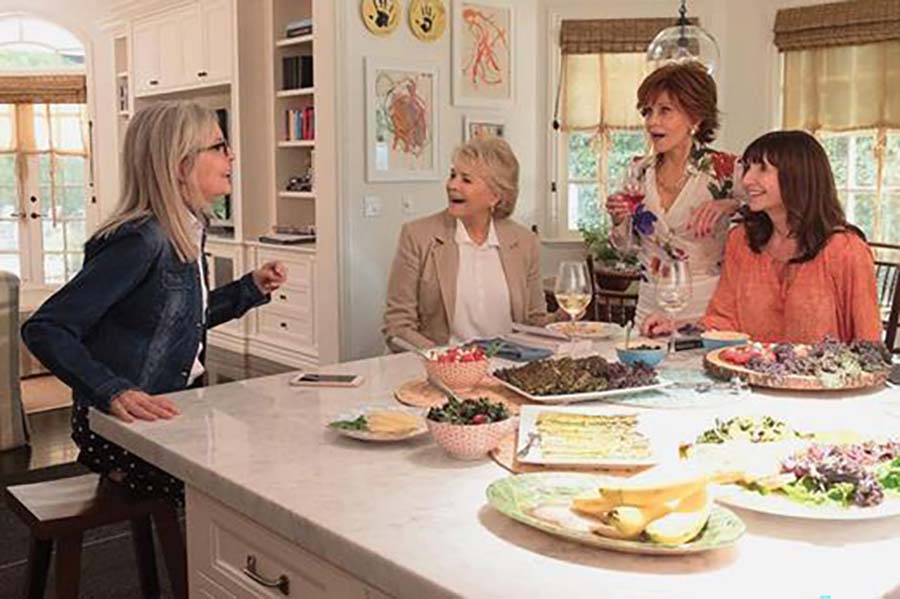
MAA: Ageism and ageist stereotypes can be overt or more subtle. What are some of the more insidious ways ageist attitudes can go undetected in film?
RC: There has been a modest increase in the representation of older characters on the mainstream screen in recent years, but increasing visibility does not necessarily equate to positive or realistic depictions of aging. Recent studies have found that while older people are more visible on screen, they tend to be shown as less active or authoritative, and depicted as frail and/or incompetent. This is particularly the case for older women. They are less likely than males to be portrayed as leaders or in the workplace, and more likely than men to be identified by their marital status and cast in less serious or supporting roles.
Thelma is a useful example of a film that appears to address aging in a positive way but includes some insidiously ageist messaging. The lead character is an older woman who is the victim of a financial scam and takes forceful action to find the perpetrator. It is described as a comedy action/adventure film. However, in setting up some ingrained ageist targets and tropes and then seeking to dismantle them primarily through comedic means, the film risks further entrenching those ageist assumptions and attitudes.
JV: There was a time when I thought ageism would be easy to spot in a film. I had this notion that films with older characters in them would often depict older adulthood as something to be either feared or laughed at. Then, when I tried to find overt examples of this, I was hard pressed to do so. There are, it turns out, very few mainstream movies that are overtly and blatantly ageist. That taught me to look for the more subtle and underlying forms of ageism.
One such kind of subtle ageism that is often unnoticed and unchallenged is what I have come to call the “ageism-ableism equation”. When older adults are singled out and applauded for their vitality and robustness into advanced old age, this can have the unintended effect of implying that any older person who is not robustly healthy, vital, and strong is less valued. Over the past few years, ableism has gained much more public recognition. But it is harder to see when it applies to older adults. Just as growing recognition of ableism has revealed the ways that society has often devalued people with disabilities, the “ageism-ableism equation” highlights how similar biases operate for older adults. Lauding only those who are robust and vital in elder age can invisibly devalue older adults who are not, much like ableism privileges able-bodied individuals.

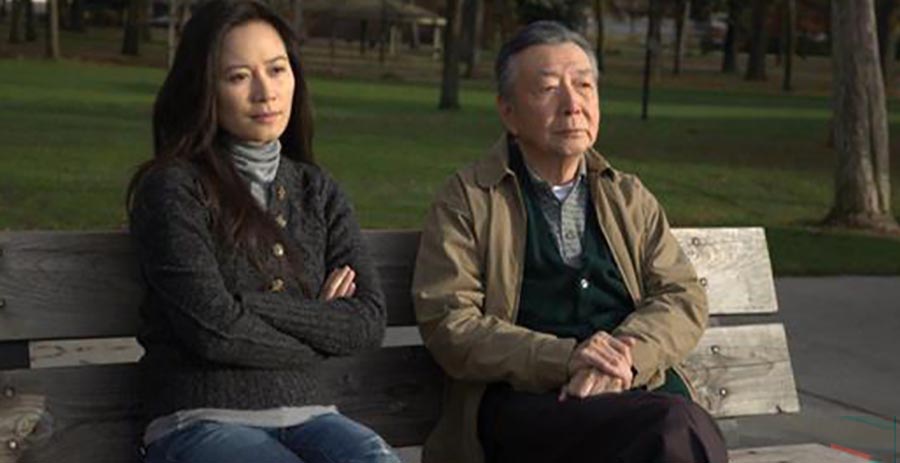
MAA: What are some examples of films that deal with constructive representations of older age or conversely, indulge in stereotypical or negative depictions?
JV: Some examples of ageism (either blatant or subtle) in movies:
- Cocoon
- Grumpy Old Men
- Old
- Last Vegas
- This Is 40
- Going in Style (The 2017 remake of the 1979 film)
- Book Club
- Fast Forward (PBS documentary)
Some examples of the affirmation and acceptance of aging in movies:
- Inga https://vimeo.com/560554785
- Go Gentle https://vimeo.com/288762438
- Dick Johnson Is Dead
- Still Mine
- What Time Is Left https://terranova.org/film-catalog/what-time-is-left/
- Young at Heart
Some examples of films that simply include older characters in a neutral way, thereby normalizing elderhood and aging:
- Going in Style (the 1979 version)
- A Thousand Years of Good Prayers
- A Separation
- The Sense of an Ending
- 45 Years
- Another Year
- The Wife
RC: The following are examples of films that explore the aging process, including the depiction of dementia, in diverse and considered ways:
- Familiar Touch
- Good Luck to You, Leo Grande
- Perfect Day
- Le Weekend
- Elizabeth is Missing
- The Father
- Juniper
- What They Had
- The Leisure Seeker
- Beginners
- Best Exotic Marigold Hotel
- The Straight Story
- Hunt for the Wilderpeople
The horror genre is particularly egregious in its representation of older people as frail, mentally unstable, frightening, unpredictable, violent, and evil. Recent examples include The Visit, The Relic, Old and Old People.
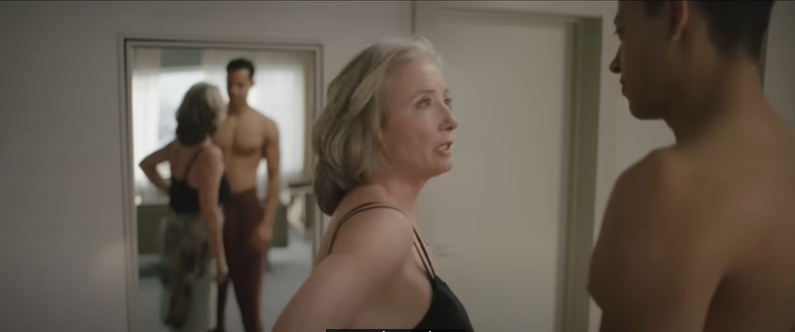
MAA: Would you say that portrayals of ageism and ageist attitudes on screen have increased, decreased, or remained the same over the last 20 years?
RC: I would argue there is a modest improvement in more complex and nuanced depictions of older age on screen but that does not mean that stereotypical, ageist depictions do not simultaneously persist. The kind of static character stereotypes and predictable storylines traditionally associated with aging have been counteracted to some extent by alternative narratives depicting the experience of older age as a continual process of learning, change and adaptation, and emphasizing the agency, active engagement and vitality of older characters.
As part of this shift, there has been a small but noticeable increase in the visibility of older women on both the small and large screens over the last couple of decades. This can be traced as far back as the 1996 feature film The First Wives Club, and more recently in leading female characters on the small screen including Damages (2007 – 2012) and Grace and Frankie (2015 – 2025). These characters and narratives offer more diverse, complex and challenging depictions of older women and the lived female experience of aging in contrast to the kindly grandmother or cranky ‘crone’ stereotypes that have historically been on offer. It is worth noting this modest improvement relates overwhelmingly to white characters and scenarios; the experiences of racially, culturally and ethnically diverse older characters lack significant representation.
JV: I think the more blatant kinds of ageist perceptions and attitudes reflected in movies have lessened over the past several years. But the more subtle and underlying attitudes that see aging as mostly repellent and repugnant are still there. They aren’t immediately obvious; one has to dig a bit deeper to point them out. But it’s precisely because these biases operate under the radar that they are so harmful—ageism affects us most when its quiet, hidden character goes unnoticed.
MAA: As a seasoned film reviewer, what would a film that deals constructively with themes around aging look like to you?
RC: The Great Escaper is a modestly scaled film based on a true story. Set in an aged care home and focusing on an older married couple, it deals with their respective infirmities with honesty and humor. It shows the wife and husband as devoted to each other but also as independent individuals with significant friendships, who make a meaningful contribution to the lives of those around them. Sexuality and intimacy in older age is still an all too rare topic on the screen, unless it is the object of broad humor. Juniper and Good Luck to You, Leo Grande are two recent, compelling films featuring older women exploring their sexuality as a key part of their identity in older age.
JV: I think the best way to answer this is to point to some films that have, in fact, presented a more balanced way of dealing with aging issues. Three that come immediately to mind are: What They Had; Still Mine; and Dick Johnson Is Dead. In each of these well-made films, some the losses inherent in older age are not shied away from, but neither are they treated with exaggerated and overplayed drama. And humor is used discreetly to help both the characters and the audience find a measure of acceptance in the face of these losses.
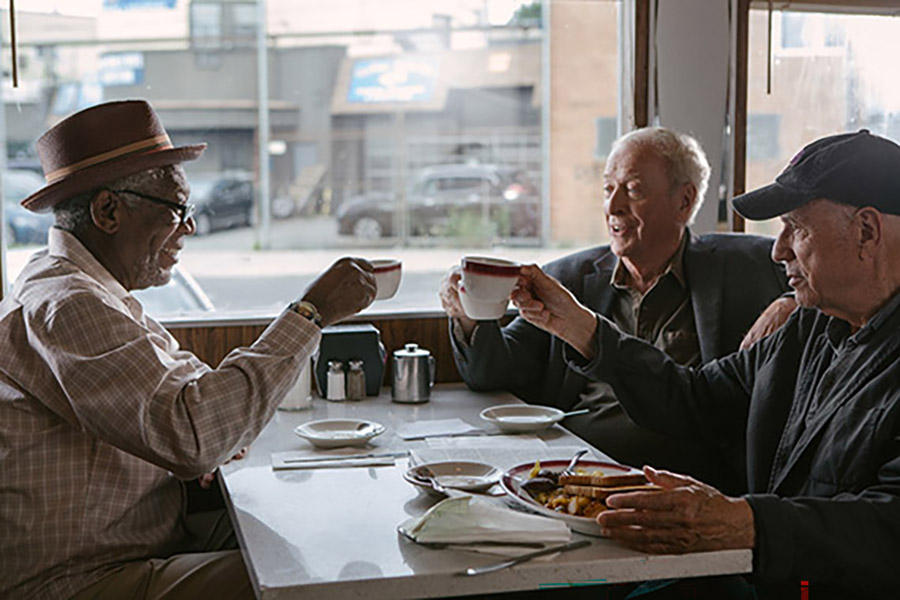
MAA: What are some ways we can “unlearn” ageism or show aging challenges in a more balanced way in films?
JV: Think about how you would like to be regarded when you are old. Then apply that to every older person you see in films or encounter in person. Also, learn to recognize the vast underlying societal assumption that aging is inherently distasteful. But beyond that, there is something we can do that seems counterintuitive. We can work to accept that there is some truth to the underlying perceptions about how problematic aging can be. One of the more powerful ways to counter ageism is to recognize that aging will come with challenges and losses. The key to dealing with them is to acknowledge them with as much acceptance and grace as you can muster!
RC: I think shifting representations of older age on screen involves encouraging and supporting filmmakers to develop complex, nuanced narratives that tackle older characters and aging in diverse ways. Having said that, I think it is important not to be too prescriptive about screen depictions given that aging itself is a unique and individual experience. Equally, I would argue we need to keep our ageist antennae well tuned, and be vigilant about identifying and calling out ageist depictions when we see them.
MAA: Yes, definitely. We will keep our “ageist antennae” well tuned going forward! Jim and Rose, we appreciate you taking time out to share your valuable expertise and insights with us. Change can start with just one conversation, and you have both armed us with a heightened awareness of ageism, and how to better understand and respond to it. Thank you.

Jim Vanden Bosch is the founder and executive director of Terra Nova Films. A multiple award-winning filmmaker in his own right, he presents multimedia workshops on caregiving, culture change, and film all across the country and abroad. Jim is also a film reviewer and editor for The Gerontologist, a journal of The Gerontological Society of America (GSA).
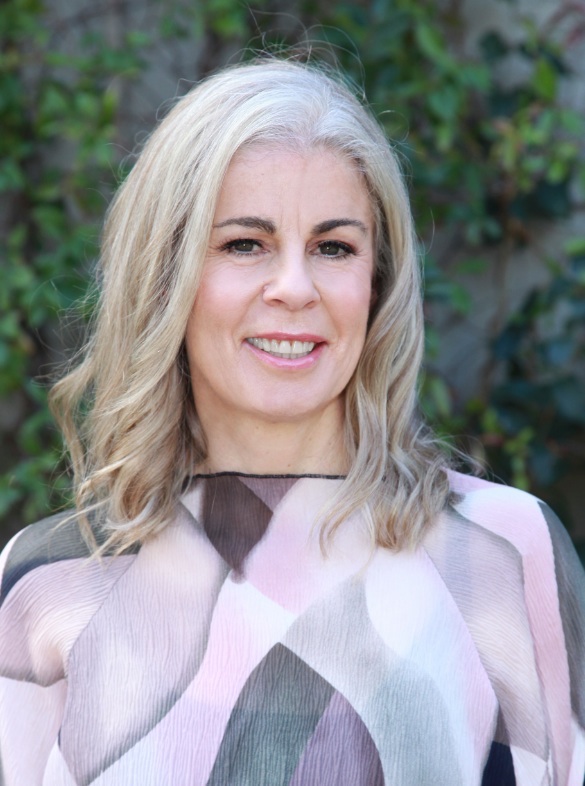
Rose Capp is a Policy Advisor for Dementia Australia, teaches in Ageing and Dementia Care studies at Flinders University, and has recently published a book, Demystifying Dementia. She is also a film reviewer and editor for The Gerontologist, a journal of The Gerontological Society of America (GSA).
